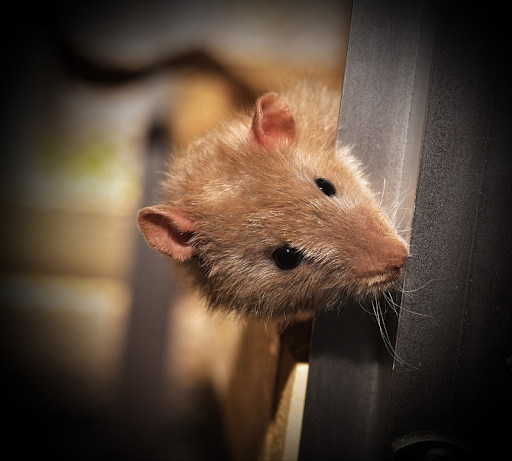5 minute read
Finding rodents in your house can be a real shock. Those little critters scurrying across your kitchen floor or gnawing away in your attic can cause a flurry of worry and stress. But don’t panic—you’re not alone. Rodent infestations are a common problem many homeowners face, and there are effective ways to handle it. This blog post will explore how to identify the problem, address health and safety concerns, implement DIY solutions, and know when it’s time to call in the professionals. We’ll also look at ways to prevent future infestations. Let’s get started on making your home rodent-free!
Identify the Problem
Signs of a Rodent Infestation
One of the first steps in dealing with rodents is knowing how to identify their presence. Droppings are a telltale sign; they are usually small, dark, and found in places where rodents are likely to travel, such as along baseboards or under sinks. Gnaw marks on furniture, wires, and food packaging are another indicator. You might also notice greasy rub marks along walls, as rodents often follow the same paths and leave oil from their fur behind.
Common Entry Points for Rodents into Homes
Rodents are crafty creatures and can squeeze through incredibly small openings. Common entry points include gaps around doors and windows, holes in walls, and spaces around utility lines. They can even enter through vents and chimneys. Inspect these areas regularly to spot and seal potential entry points before rodents find them.
Know the Health and Safety Concerns of Rodent Infestation
Health Risks Associated with Rodents
Rodents are not just a nuisance—they can pose serious health risks. They can carry diseases like Hantavirus, Salmonella, and Leptospirosis, which can be transmitted to humans through droppings, urine, and bites. Rodents can also bring fleas, ticks, and mites into your home, leading to further health complications.
Safety Tips for Handling Rodent Infestations
When dealing with a rodent infestation, safety should be a priority. Always wear gloves when handling traps or cleaning up droppings. Avoid direct contact with rodents and their waste to reduce the risk of disease transmission. It’s also a good idea to ventilate the area by opening windows to disperse any airborne contaminants.
Know When to Call a Professional
Indications That Your Rodent Problem May Be Beyond a DIY Solution
Sometimes, a rodent problem can be too severe for DIY methods. If you notice an increase in droppings, gnaw marks, or actually see multiple rodents, it might be time to call in the pros. A professional pest control service can handle large infestations and provide more effective solutions than over-the-counter products.
How to Choose a Reliable Pest Control Service
Choosing a reliable pest control service is crucial to effectively managing a rodent problem in your home. Start by researching local rodent management services and checking their credentials, such as licenses and certifications, to ensure they meet industry standards. Reading customer reviews can provide insight into the service’s reputation and reliability. Additionally, ask for detailed estimates and inquire about the methods they use, making sure they align with your preferences for safety and environmental impact. A good pest control service will offer a comprehensive approach, addressing not just the current infestation but also implementing preventative measures to keep rodents from returning. By carefully selecting a reputable provider, you can ensure your home remains rodent-free and safe for your family.
Learn Effective DIY Solutions
Steps for Setting Up Traps Effectively
Setting up traps can be an effective way to catch rodents. Snap traps are one of the most common types and should be placed along walls where rodents travel. Use bait like peanut butter or cheese to lure them in. Make sure to check and reset traps regularly for maximum effectiveness.
Natural Deterrents and Prevention Methods
If you prefer a more natural approach, several deterrents can help keep rodents at bay. Peppermint oil, for example, has a strong scent that rodents dislike. Simply soak cotton balls in peppermint oil and place them around your home. Another method is to use ultrasonic repellents, which emit high-frequency sounds that deter rodents. Keeping your home clean and free of food crumbs can also make it less attractive to these unwanted guests.
Prevent Future Infestations
Tips for Securing Your Home to Prevent Rodents from Returning
Preventing rodents from entering your home in the first place is the best strategy. Seal cracks and gaps around your home’s exterior using caulk or steel wool. Install door sweeps on exterior doors and make sure windows are properly sealed. Regularly inspect your home for potential entry points and address them promptly.
Regular Maintenance to Keep Your Home Rodent-Free
Maintaining a rodent-free home requires ongoing effort. Keep food stored in airtight containers and dispose of garbage regularly. Clean up spills and crumbs immediately to eliminate potential food sources. Regularly inspect your home for signs of rodent activity and take action at the first sign of trouble.
Dealing with rodents in your home can be daunting, but taking swift action is crucial. By identifying the signs of infestation, addressing health and safety concerns, implementing DIY solutions, and knowing when to call a professional, you can effectively manage and prevent rodent problems. Remember, a rodent-free home is a healthier, safer, and more comfortable place to live.
And if you need professional assistance, don’t hesitate to contact a trusted pest control service. Together, we can keep your home rodent-free!





